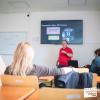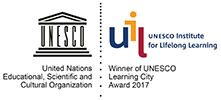Navigating Global Turbulence: Interview with Dr. Danilo Babić
2024
May
07
On 25th April, amidst the tumult of the ongoing Russian war in Ukraine and its sprawling consequences across continents, the AEGIS (African Studies in Europe) CRG (Collaborative Research Group) Africa in the World Symposium convened a gathering of exceptional minds to delve into the intricate interplay between global conflicts and regional dynamics. Among the distinguished speakers was Dr. Danilo Babić, Research Fellow at the Institute of International Politics and Economics in Belgrade, whose expertise in Sub-Saharan African studies illuminated the complexities of the Sahel region's entanglement with the Russo-Ukrainian conflict.
Your academic focus primarily centers on Sub-Saharan African studies and post-colonial studies. What initially drew you to this region, and what sparked your interest in exploring its complexities?
Actually, it was quite by accident. When I was in my final year of my Bachelor studies, we had a course on globalization, and I wanted to do something about Africa. So, I googled 'Africa - poverty,' and there was a video by that name. It was about privatization in Zambia, and I realized this is quite similar to the Serbian experience. So, that was the initial moment for me to focus on this region. I did my Bachelor's degree in African studies, Master's degree and even my Ph.D on this topic. But that accidental video was the initial starting moment. And then, of course, reading, reading, reading.
Throughout your academic journey, you've explored various dimensions of Sub-Saharan Africa, from development issues to international economy. Can you share any pivotal moments or experiences that solidified your passion for studying and advocating for this region's advancement?
It is precisely the question of poverty that I wanted to address. Why is Africa still poor, despite its abundance of natural resources? How is it possible for such a rich continent to have people living in such difficult conditions? Coming from Serbia,
I learned not to believe the CNN and BBC propaganda that attributes Africa's poverty to corruption or laziness.
This narrative dates back to colonial times, perpetuated even in the '90s and the early 2000s. It's absurd to think that corruption and laziness are the sole reasons for poverty. There are numerous factors at play, making it a multi-layered problem. I've dedicated myself to uncovering the truth behind Africa's poverty, although I'm not sure I'll ever find a complete answer. It's a complex issue that will likely occupy my entire academic career.
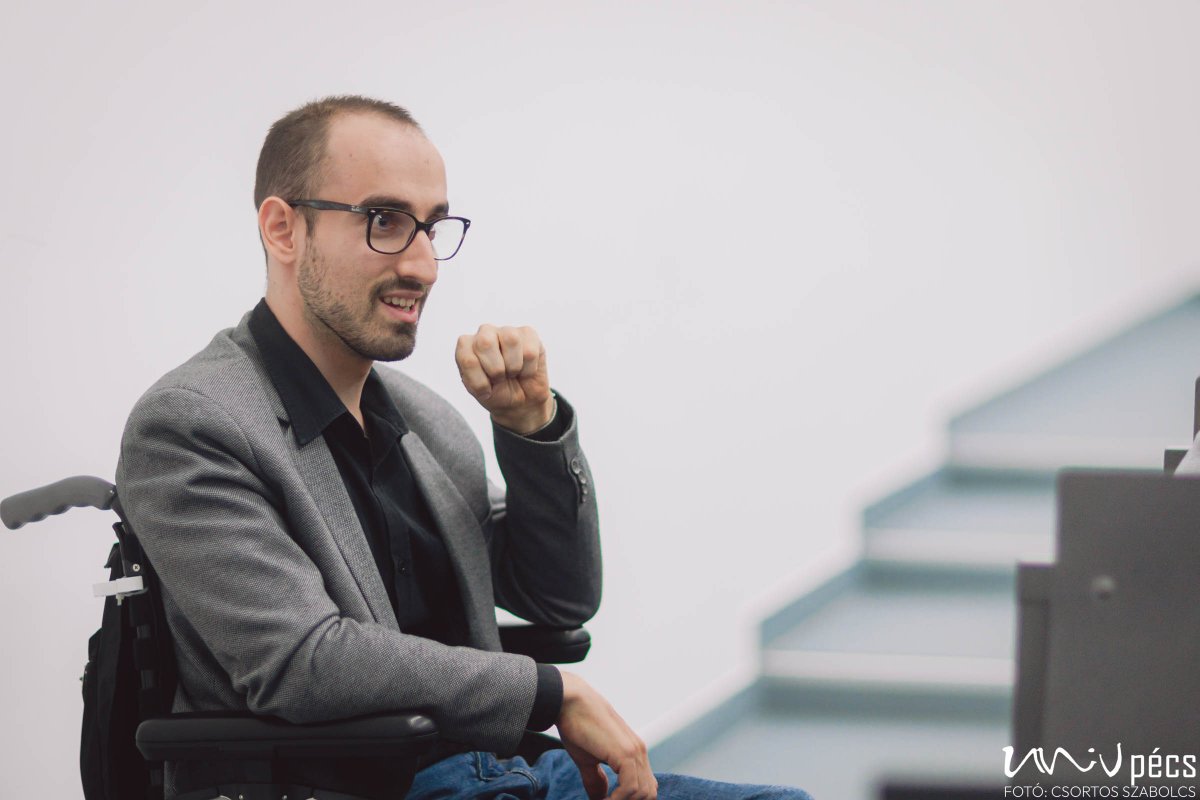
Your dissertation, „Strategies for the development of Sub-Saharan Africa: the role of old and new global actors," underscores your commitment to understanding the complexities of development in Africa. What motivated you to undertake this research, and what insights did you gain from the process?
I wanted to explore what's called in the literature a new scramble for Africa. I aimed to analyse the new actors that have been emerging in Africa since the early 2000s, such as China, India, Brazil, and Russia. I wanted to assess what's in it for Africa concerning this new engagement of these actors. Is it just a shift in dependencies, switching neocolonial masters, or is it something new? Is it something beneficial? In the dissertation, I compared the old actors — the former colonial powers and the USA — with the new actors, focusing only on China and India due to constraints on scope. Additionally, I incorporated a third component into this comparison: the local development actors. I examined what was happening in Africa, including African socialism and the current model in Rwanda under President Kagame. Thus, I aimed to compare the old external actors, the new external actors, and internal actors.
Every development model has both positive and negative aspects. There are no absolutes.
For instance, the good aspect of China's involvement is infrastructure development, while a negative aspect could be poor working conditions. Local development models, such as socialism as seen in Tanzania under ujamaa (the principle of cooperative economics — editor), may have failed overall, but they still demonstrated positive outcomes. They successfully addressed issues like illiteracy in certain regions, particularly in rural areas. So, despite the ultimate failure of the model, there are valuable lessons to learn from its successes.
Could you reflect on how your perspective on the region has evolved over time, and what key lessons have you learned along the way?
Africa is not a monolith block. That is one of the biggest mistakes people make when talking about Africa.
I realised that from the very beginning, but I didn't realise the depth of it. So, I didn't realise the intensity of the diversity. Recently, I have had the urge to delve back into African history to understand the internal political processes. As much as I read, it constantly pushes me to go further, further back into African history and to grasp the political dynamics within particular African countries or regions.
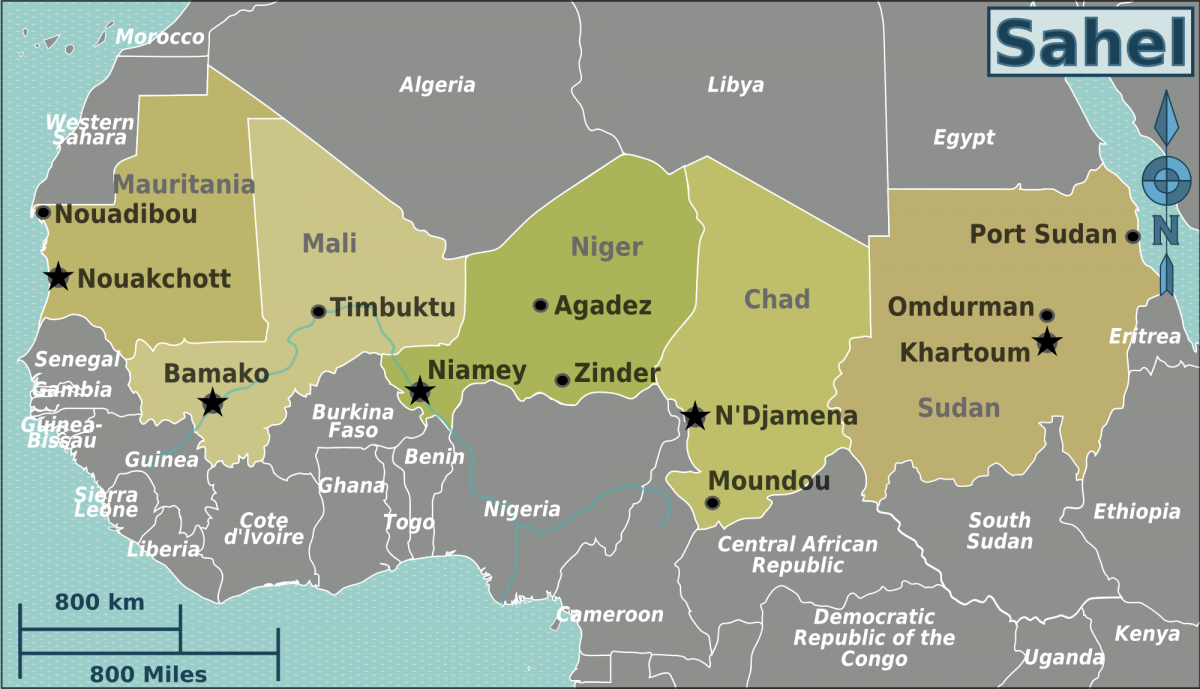
Source: Wikimedia Commons
Could you elaborate on some specific examples or instances where disruptions in global food supply chains have directly impacted food security and economic stability in Sahelian countries?
Food security is a very complex problem, especially in the Sahel region, due to its harsh climate, which is unfriendly not only to humans but also to plants and animals alike.There are two possible answers at first glance: this weed crisis may be just a temporary shock, and things are already getting back to normal. This unfortunate war will likely end sooner rather than later, and things will more or less return to normal. However, the structural problem will remain, and there are a couple of solutions.
Investing in African agriculture is crucial. New seeds and agro-technical measures need to be developed to support agriculture.
For instance, Israel provides a good example of achieving food security in harsh conditions. Addressing climate change is essential, along with creating new seeds and collaborating with everyone. It's important to strive for self-sufficiency in food production, as relying on global supply chains can lead to crises when they break. Everyone needs to work on shortening global value chains and increasing food production within Africa. Regions in Africa suitable for growing certain crops need to be identified, and investments in African agriculture are necessary. Collaboration with external partners to develop new seeds and hybrid plants, not GMOs, but hybrids, is essential for creating more resilient crops for the harsh Sahelian climate.
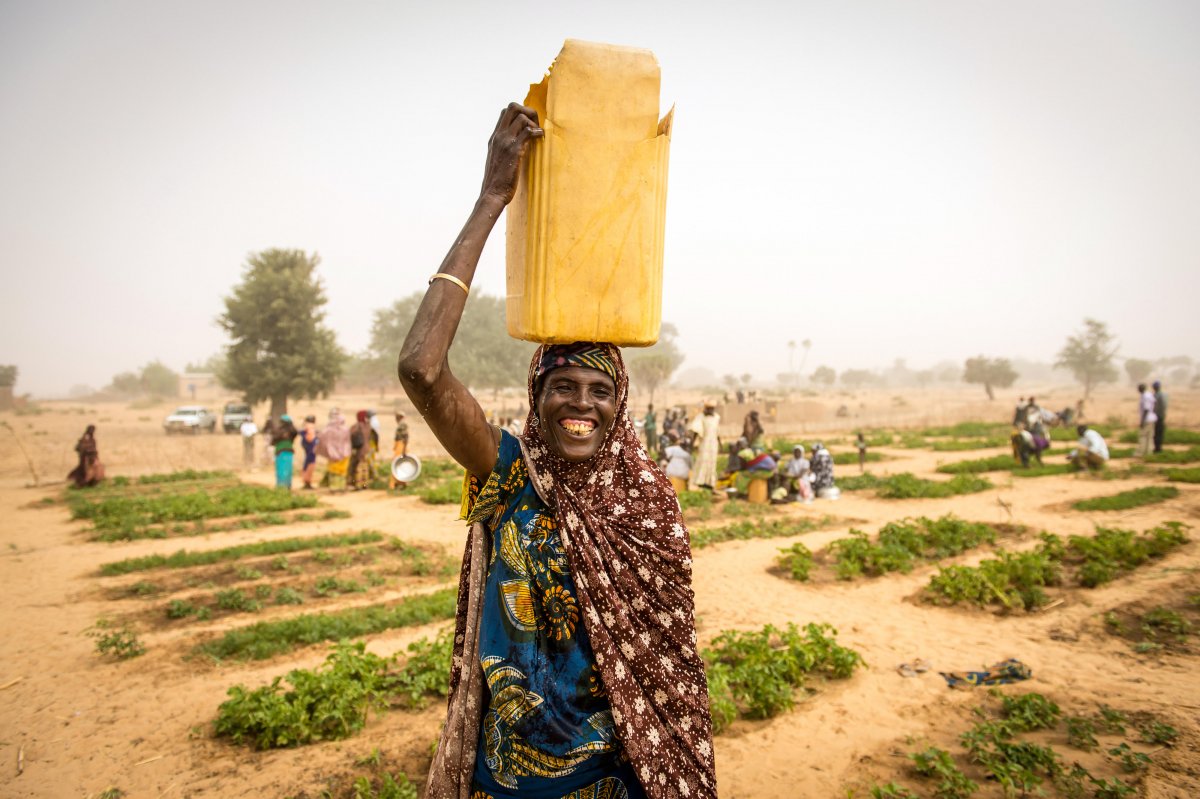
Source: Sean Sheridan © Mercy Corps
Your presentation touched upon the role of Russia in resolving agricultural and food-related challenges in the Sahel. Can you elaborate on the specific initiatives or assistance provided by Russia?
Russia has provided three donations of wheat, totaling 50,000 tons, to African countries through their own transportation channels. It's unclear how they managed to avoid sanctions, but this donation helped alleviate the problem temporarily. During the Africa-Russia summit in Moscow last July, the new president of Burkina Faso mentioned that
African leaders need to take action to improve the situation, as relying solely on donations is not sustainable. The climate in the Sahel is expected to worsen in the coming years, so African governments must find long-term solutions. Despite challenges, there are examples like Israel and Australia that demonstrate successful agricultural practices in harsh climates, providing hope for potential solutions.
How do you see this evolving relationship influencing broader geopolitical dynamics in the Sahel region, particularly in relation to France's historical presence and influence?
France is being pushed out of Africa in international relations, but you cannot have an empty space. When one actor leaves, another steps in. So, Russia is stepping in to fill France's place. However, this doesn't necessarily mean that Russia is actively pushing France out. I don't like to underestimate the will of the African people who want to break free from France, considering everything France has done in Sahel and Africa, particularly in West Africa, over the last one and a half centuries.
African nations are turning to Russia as a partner, primarily in the area of security and recently in food security through donations. Everything is still in its early stages. I like to think of this as Africa entering a new honeymoon phase with Russia. We will have to wait and see how much of this cooperation materializes into concrete projects and how these projects develop and whether they are completed. So, that's where we stand for now.
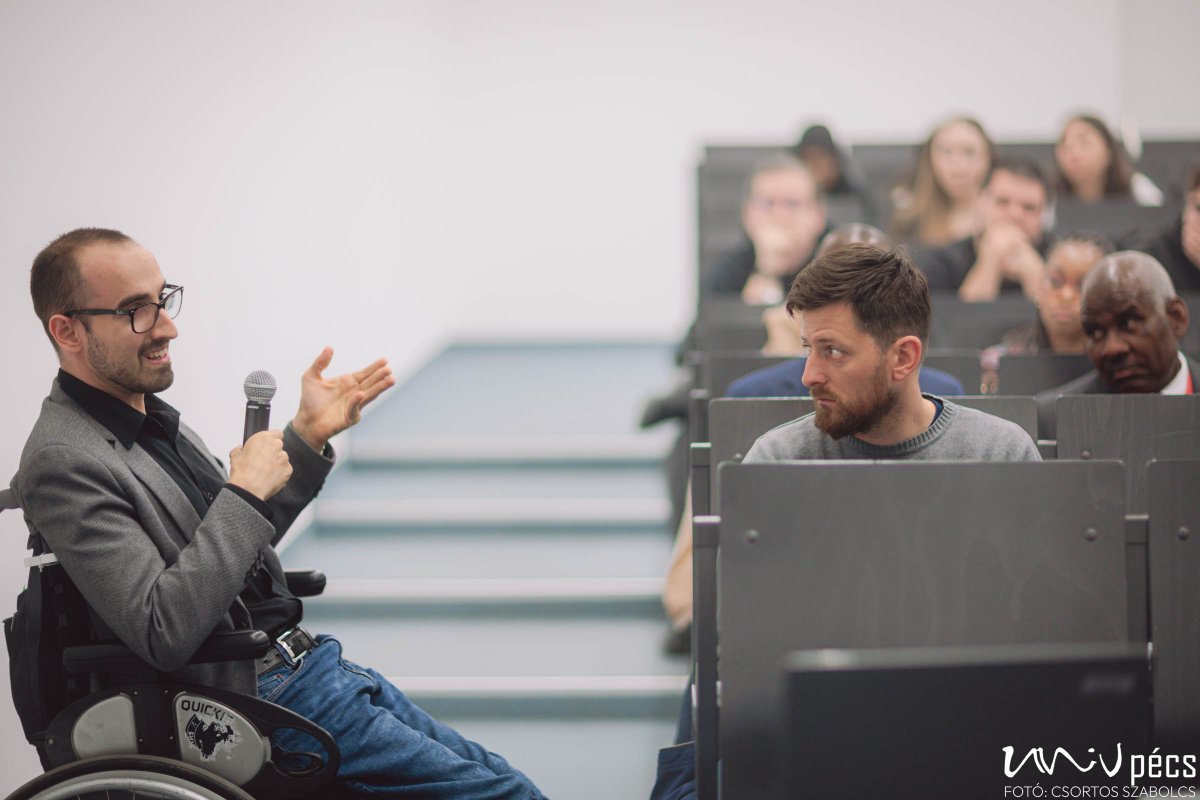
The hypothesis presented in your lecture suggests that France's aggressive posture in the Ukrainian crisis may be linked to perceived marginalization in the Sahel by Russia. Can you discuss the evidence or factors that support this hypothesis, and what implications does it have for France's foreign policy objectives in both regions?
Niger is very important to France, especially because of its uranium. Niger is the second largest supplier of uranium to France, and while it may not be the largest, it is the cheapest, which is why France values it so highly. This is also connected to France's green agenda, as France receives over 60 percent of its energy needs from nuclear power plants, which rely on uranium as a clean energy source. Without cheap uranium from Niger, France cannot sustain its nuclear energy production.
France believes it is being pushed out of Niger by Russia. There is another theory proposed by some analysts and authors that suggests the United States is trying to push France out of Africa because they believe France can no longer adequately represent the interests of the collective West on the continent.
In the case of Niger, the situation is uncertain. Only in the last couple of days, the US military announced they were asked to withdraw from Niger, which could be interpreted as a signal that Niger is leaning towards Russia. However, before this announcement, it was uncertain whether Russia would step in or if the old order would be maintained. For instance, coups in Gabon and Guinea do not necessarily indicate pro-Russian sentiments.
France's pride and prestige are at stake, which is why they have taken an aggressive stance in the Ukrainian theater. However, it's unclear what France hopes to accomplish by being aggressive on the Ukrainian issue. Engaging in conflict only adds fuel to the fire, and it's a mistake that could have serious consequences.
In terms of security measures, you highlighted the collaborative efforts between Sahelian countries and the Russian African Corps in combating terrorist groups. How do you assess the effectiveness of these joint operations, and what challenges or obstacles do they face in achieving long-term stability in the Sahel region?
The efficacy has definitely increased enormously, by 300% to 500%, under the guidance of Russian instructors and small contingents of Russian forces in the field. For instance, the Malian government was able to recapture the strategically important cities of Gao and Kidal, which they had lost sovereignty and control over around 10 or 12 years ago. They achieved this in just one year under Russian guidance. Before that, despite French influence and assistance for 10 years, they were unable to do so.
In the Central African Republic, which is not strictly Sahel but is nearby, President Touadéra stated that the French had been educating and training their forces for around two years, but with little progress — they were even using wooden rifles. This frustration led him to invite Wagner, a Russian private military company, to intervene.
The difference lies in the effectiveness of the Russian approach, despite Russia having had a smaller contingent than France in the past.
The positive aspects include increased efficiency against terrorists and stability in those countries, with fewer regime changes. However, there are negative sides as well. While the Russian presence has reinforced autocracy and led to occasional human rights violations and crimes, such as the alleged execution of 500 civilians in Mali by local forces, there is no evidence implicating Russian troops. Nevertheless, the operation was oversold, and they failed to intervene.
The recent transformation from Wagner to the official Russian army, known as the Russian Africa Corps under the command of the GRU (Russian Chief Intelligence Office — editor) and the Ministry of Defence of Russia, may lead to greater accountability and responsibility in the future. However, it's too early to tell, as this change occurred less than six months ago.
Given the interconnectedness of global events, how do you envision the evolving dynamics between the Russo-Ukrainian conflict and the Sahel region in the coming years? Are there any potential scenarios or developments that stakeholders should be prepared for?
Regarding the war, let's all hope it ends soon because many people are dying. Even in the Western media and public opinion, there seems to be a shift. They are starting to realize that Ukraine cannot win this conflict as they initially thought. So, that's one point. In the Sahel region, the complete elimination and destruction of terrorists are very important. I mentioned Mali, but there have also been significant defeats of terrorist branches in Burkina Faso, which is crucial.
The first challenge would be to complete the stabilization of those countries, particularly regarding basic security, especially in rural areas. The second challenge would be the transfer of power from military regimes to civilian governments.
Not many countries can function successfully under military rule.
Egypt is a positive example, but even there, when military leaders come to power, they usually retire from the army and become ex-officers. It's very difficult to have a successful country with a direct military role.
So, that is the challenge for all the incumbent leaders in Mali, Burkina Faso, Niger, and indeed in other countries like Gabon. However, Gabon is not within the Sahel region. This is the main challenge because if these countries become entrenched in cycles of violence, as we have seen in Sudan, the situation could become extremely messy. Let's hope we can avoid such outcomes.
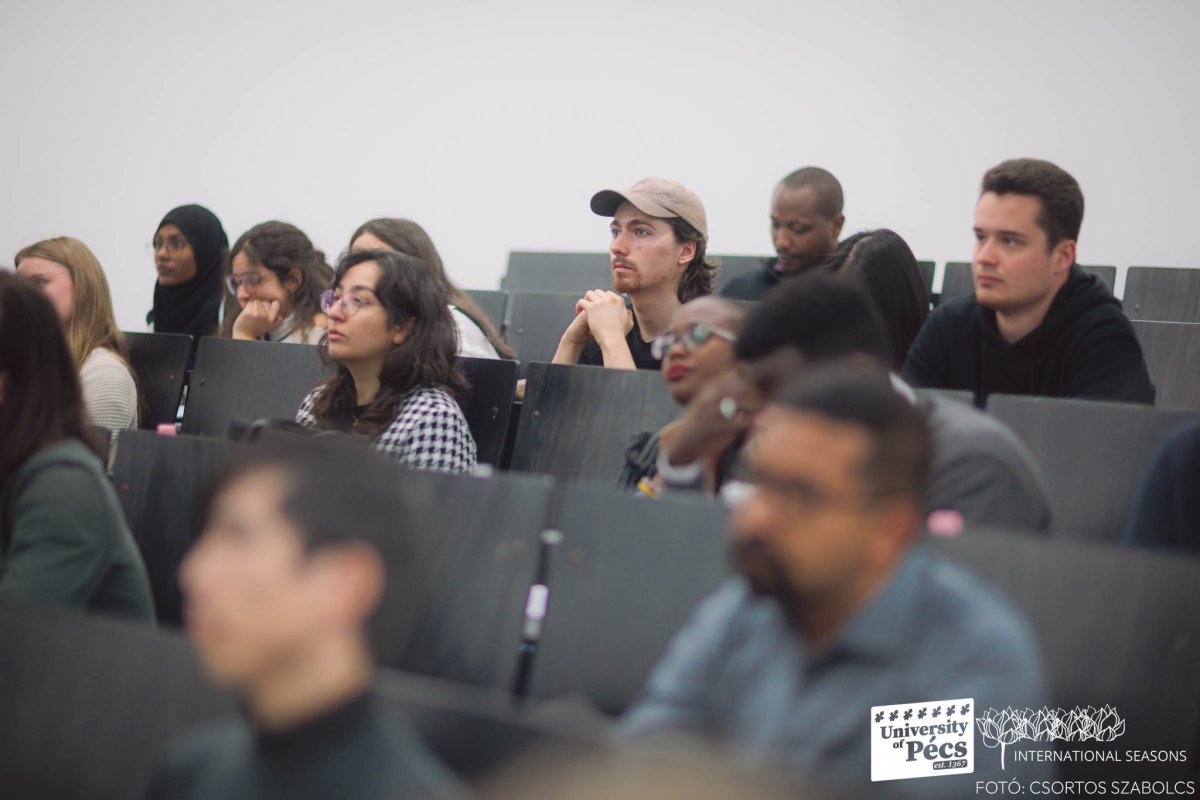
Socio-economic disparities and poverty exacerbate vulnerabilities in the Sahel region. How do you see the ongoing disruptions in global markets, particularly due to the Russo-Ukrainian conflict, impacting efforts to address these underlying issues and promote inclusive development in Sahelian countries?
In my opinion, the entire concept of globalization is in crisis. I mentioned global value chains, global shipping, and global transport, all of which are very vulnerable. We can see this in examples such as the Russia-Ukraine conflict, but it's not limited to that. Look at what's happening in Yemen, and what occurs when Iran and Israel escalate tensions. Everything becomes more expensive, creating chokepoints in the global economy.
My economic hypothesis is that we need to shorten these global value chains and reduce dependence on global markets, instead focusing more on our neighboring countries.
It's easier for a country to import from its neighbors during a crisis than from distant locations like Sri Lanka. Africa, as a continent, should strive for this. I don't mean complete self-reliance like North Korea, but rather a shift towards a more autarkic approach, as suggested by the Egyptian author Samir Amin. Africa is vast and rich in resources, so it should look inward to harness its own potential before turning to the global market. This approach can help prevent the kinds of shocks and crises we're currently experiencing.
Are there any lessons or insights from the collaboration between Sahelian countries and the Russian African Corps that could be applied to enhance international cooperation and security partnerships in other regions facing similar challenges?

It's too early to tell. The beginning of the cooperation seems promising, but as I said, it's like a honeymoon period. We will have to see how the cooperation develops and what the results will be. There may also be negative consequences of this cooperation.
Regarding why security cooperation with Russia is more effective than with France, I'm not entirely sure. Perhaps it's the desire to genuinely combat terrorism. I'm not suggesting that French forces cooperated with terrorists or enabled them to regroup, but it's possible that France's primary objective was to maintain its neocolonial empire, with combating terrorism being a secondary objective. This could explain why cooperation with France was, in practice, ineffective. I believe Russians are more sincere and direct in their fight against terrorism, which may be the reason for their effectiveness. It's a complex situation.
As a researcher specializing in international politics and economics, what areas of further research do you believe are essential for deepening our understanding of the interplay between global conflicts and regional dynamics, such as those observed in the Sahel?
I think it's important to understand world trade. Understanding the chokepoints in global supply chains and energy dynamics is crucial. This includes understanding renewable energy sources and ecological impacts. everything is connected and of course be aware of rare earth elements. They are very important nowadays because of technology, microchips and so on. This factor is gaining importance in understanding the underlying causes of conflicts and crises around the world.
I believe there's a bigger picture beyond just the values, policies, and principles of democracy, free speech, and liberalism. We should look beyond these and strive to understand the economic aspects as well.
Looking ahead, what do you believe are the most critical policy considerations for stakeholders, including governments, international organizations, and civil society, to effectively address the complex challenges posed by the Russo-Ukrainian conflict and its implications for the Sahel region?
I believe we are now at the end of the beginning phase for the Sahel region's recompensation. Change has occurred, and now we will see what it brings. Is it just a change of the global hegemon, or is it something entirely new? Moreover, what about the new leaders who have emerged, especially in Burkina Faso? We have a very young and energetic leader who is attempting to emulate Thomas Sankara. He has garnered sympathy from the wider African public. However, we must wait and see if he and others will rise to the expectations placed upon them, or if they will become new versions of the old African autocrats who plundered their countries, nations, and people before. Even some notorious dictators from African history had promising first few years before reverting to autocracy. One such example is Kwame Nkrumah, one of the champions of African political thought, who turned autocratic in his final years of power before being deposed in 1966. It is now up to these new leaders to learn from the mistakes of the past and bring something genuinely new to their countries and the region as a whole.

In this era of interconnected crises and evolving geopolitical landscapes, Dr Babić’s words serve as a beacon of insight for shaping a more resilient and equitable future for the Sahel and beyond. If you want to know more about his academic endeavors check out some of his research papers:
Babić, D. (2018): Mechanisms of establishing neocolonial domination in Sub-Saharan Africa. The Review of International Affairs, 69(1169), 5-20.
Babić, D. (2022): Russia’s new role in Africa–Reach and limits of Russia’s re-emergence. The Review of International Affairs, 73(1184), 49-70.
Babić, D. (2023): EU-Sub-Saharan Africa relations: The history of (un) equal partnership. Међународни проблеми, 75(2), 237-261.
Written by Mercédesz Kovács-Csincsák
- Log in to post comments
University of Pécs | Chancellery | IT Directorate | Portal group - 2020.












